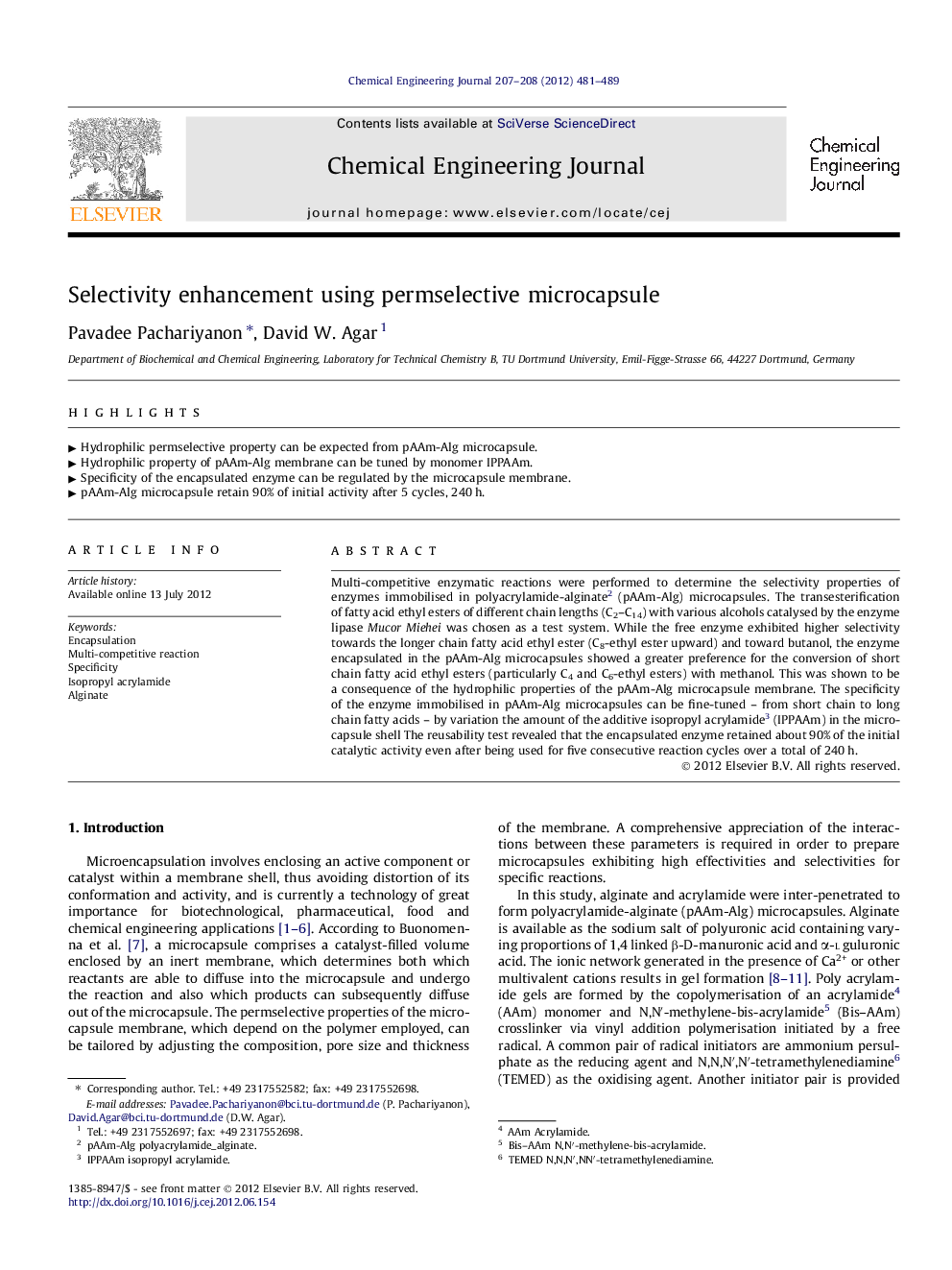| Article ID | Journal | Published Year | Pages | File Type |
|---|---|---|---|---|
| 149446 | Chemical Engineering Journal | 2012 | 9 Pages |
Multi-competitive enzymatic reactions were performed to determine the selectivity properties of enzymes immobilised in polyacrylamide-alginate2 (pAAm-Alg) microcapsules. The transesterification of fatty acid ethyl esters of different chain lengths (C2–C14) with various alcohols catalysed by the enzyme lipase Mucor Miehei was chosen as a test system. While the free enzyme exhibited higher selectivity towards the longer chain fatty acid ethyl ester (C8-ethyl ester upward) and toward butanol, the enzyme encapsulated in the pAAm-Alg microcapsules showed a greater preference for the conversion of short chain fatty acid ethyl esters (particularly C4 and C6-ethyl esters) with methanol. This was shown to be a consequence of the hydrophilic properties of the pAAm-Alg microcapsule membrane. The specificity of the enzyme immobilised in pAAm-Alg microcapsules can be fine-tuned – from short chain to long chain fatty acids – by variation the amount of the additive isopropyl acrylamide3 (IPPAAm) in the microcapsule shell The reusability test revealed that the encapsulated enzyme retained about 90% of the initial catalytic activity even after being used for five consecutive reaction cycles over a total of 240 h.
• Hydrophilic permselective property can be expected from pAAm-Alg microcapsule. • Hydrophilic property of pAAm-Alg membrane can be tuned by monomer IPPAAm. • Specificity of the encapsulated enzyme can be regulated by the microcapsule membrane. • pAAm-Alg microcapsule retain 90% of initial activity after 5 cycles, 240 h.
